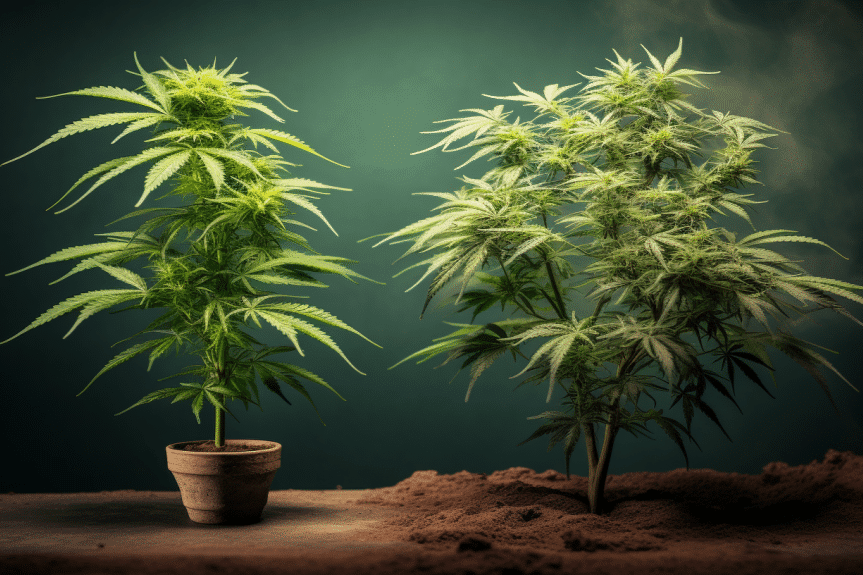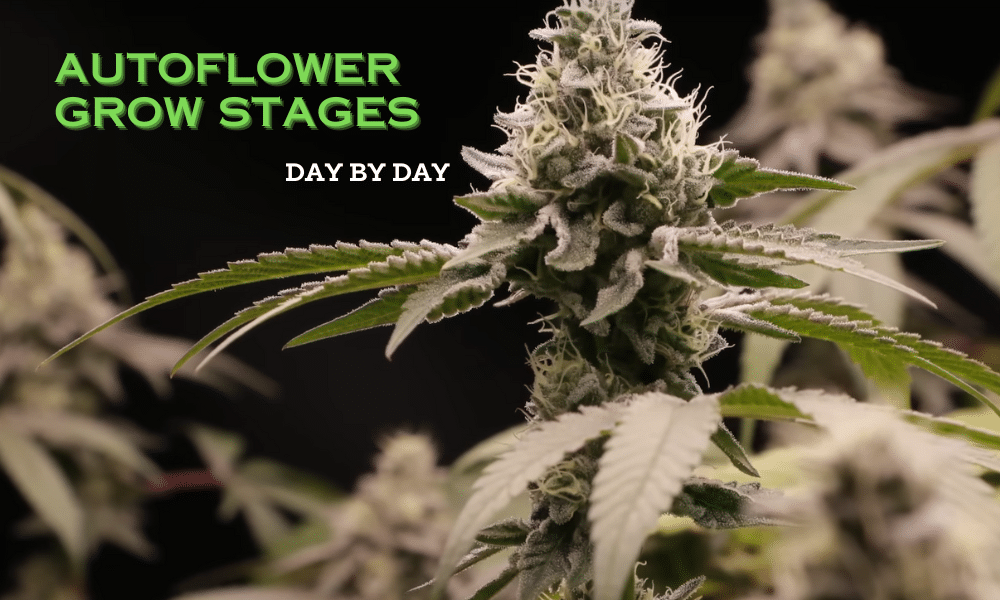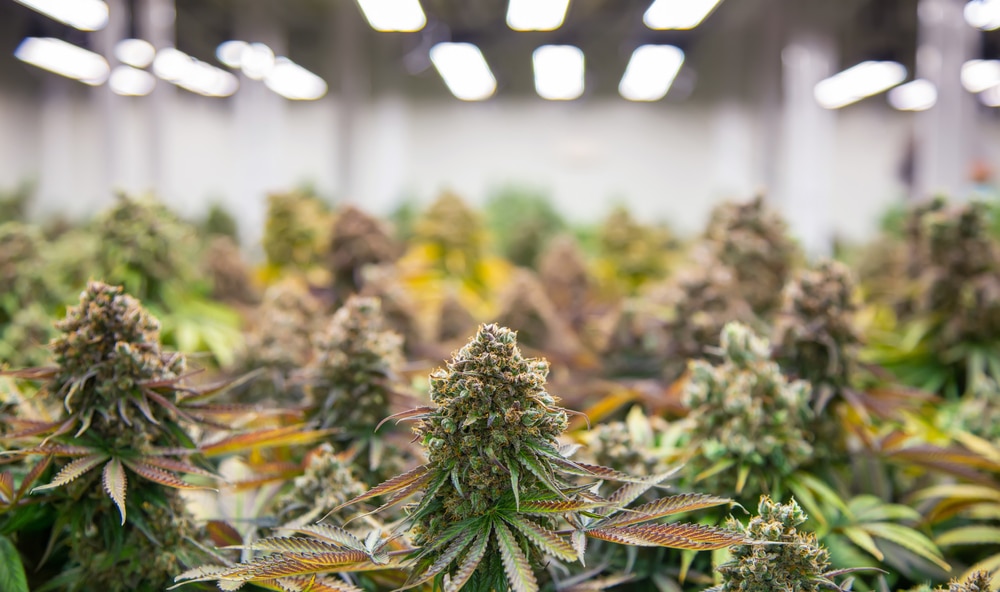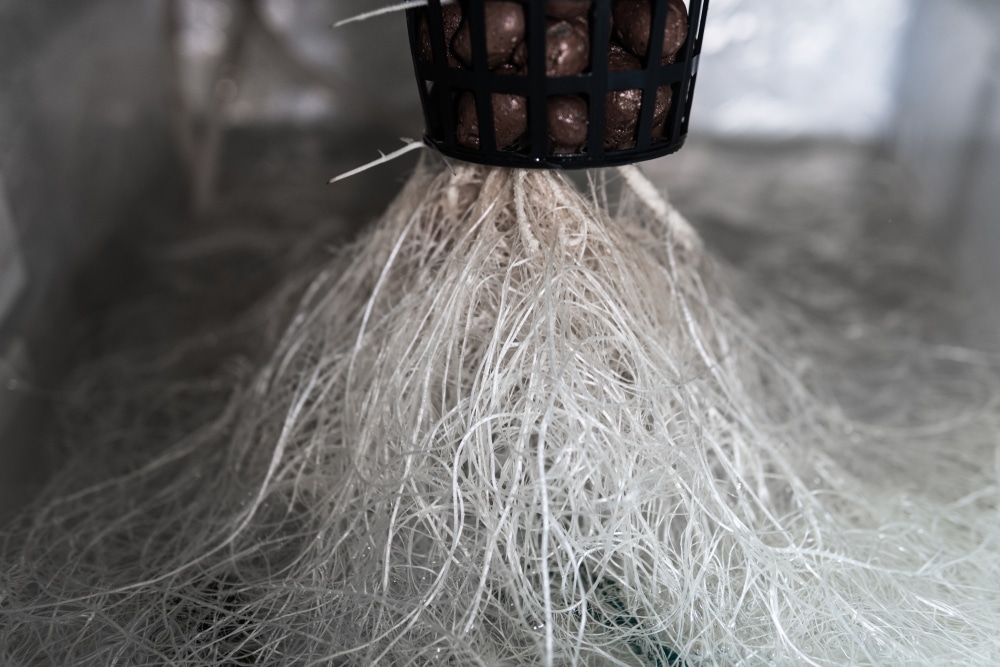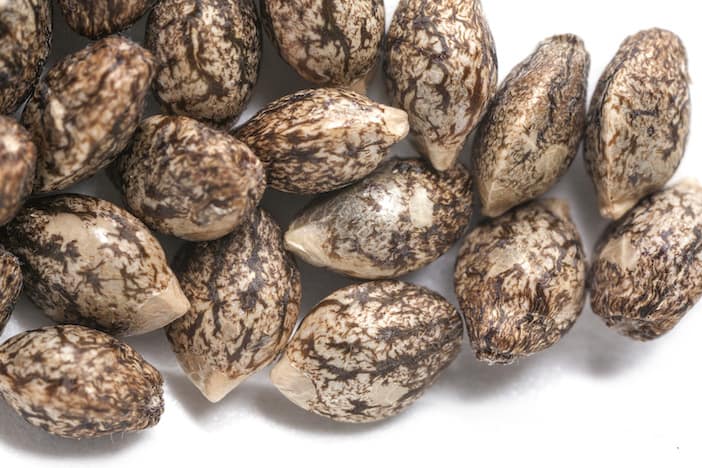No products in the cart.
Marijuana Education
What’s the Difference Between Hemp and Cannabis?
What’s the difference between hemp and cannabis?
Well, when it comes to legal classification, chemical composition, cultivation, growth, and uses and applications, there are some key distinctions.
We’ll explore these differences and discuss the potential health benefits of hemp and cannabis.
So, if you’re curious about these two plants and their unique properties, keep reading to expand your knowledge on this fascinating subject.
What are the legal differences between hemp and marijuana?
The legal classification of hemp and cannabis varies from country to country. While some countries consider both hemp and cannabis to be illegal substances, others have different regulations in place.
In the United States, hemp and cannabis are both classified as Schedule I controlled substances under federal law. However, there are certain states that have legalized the use of cannabis for medical or recreational purposes.
In these states, cannabis is regulated and can be legally purchased and consumed by individuals who meet certain criteria.
In contrast, some countries have taken a more lenient approach towards hemp. Hemp is often differentiated from cannabis based on its low THC (tetrahydrocannabinol) content, which is the psychoactive component of cannabis.
Many countries have established a legal threshold for THC content, and if the hemp plant falls below this threshold, it’s classified as hemp and not subjected to the same restrictions as cannabis.
The legal classification of hemp and cannabis isn’t only based on THC content but also on their intended use.
Hemp is commonly used for industrial purposes, such as textiles, paper, and construction materials. Cannabis is primarily used for medicinal or recreational purposes. These differing uses have influenced the legal status of each plant in various countries.
The legal classification of hemp and cannabis will change over time as new research and legislation emerge.
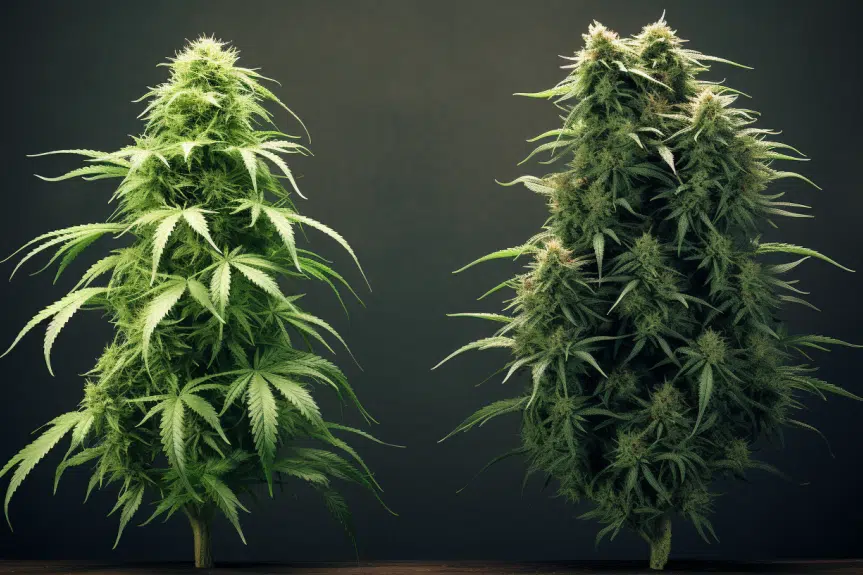
Is there a difference between hemp and marijuana cultivation?
While they’re both members of the Cannabis sativa species, there are distinct variations in their cultivation and growth patterns. Here are three key points to consider:
- Light Requirements: Hemp is a versatile plant that can tolerate a wider range of light conditions compared to cannabis. It thrives in full sunlight but can also grow well in partially shaded areas. On the other hand, cannabis plants require intense light and are typically grown indoors or in controlled environments where light intensity and duration can be carefully managed. One option to make cannabis less challenging to cultivate like hemp is choosing easy growing cannabis seeds.
- Spacing and Density: Hemp plants are typically grown in dense fields with a spacing of 4-5 feet between plants. This allows for maximum fiber and seed production. Cannabis plants, however, require more space to grow and develop. They’re usually cultivated with wider spacing (6-8 feet) to promote better airflow and light penetration, which helps reduce the risk of diseases and maximize bud development.
- Harvest Timing: Hemp and cannabis also differ in their optimal harvest timing. Hemp is primarily grown for its fibers and seeds, so it’s usually harvested when the seeds are mature and the fibers are at their peak strength. Cannabis, on the other hand, is cultivated for its psychoactive compounds, such as THC and CBD. It’s harvested when the flowers are fully mature and the trichomes are at their highest potency.
Chemical composition of hemp vs. marijuana
To understand the difference between hemp and cannabis, it’s important to examine their chemical composition and how it affects their properties. Both hemp and cannabis belong to the same plant species, Cannabis sativa, but they differ in their chemical makeup, primarily in the levels of certain compounds.
Traditionally, cannabis contains above five percent THC. In contrast, hemp has a THC concentration of less than 0.3%, making it non-intoxicating.
Another key compound is cannabidiol (CBD), which has gained significant attention for its potential therapeutic benefits. Hemp tends to have higher levels of CBD compared to cannabis, with some varieties containing up to 20% CBD. On the other hand, cannabis strains may have varying CBD levels, but they’re generally lower than those found in hemp.
The chemical composition of hemp and cannabis also affects their physical characteristics. Hemp plants are tall and sturdy, with long fibers that make them suitable for industrial applications, such as textiles and building materials. Cannabis plants, on the other hand, are typically shorter and bushier, with dense buds that are cultivated for their medicinal or recreational use.
Potential health benefits of marijuana and hemp oil
Here are three key health benefits associated with hemp and cannabis:
- Pain Relief: Both hemp and cannabis have been used for centuries to alleviate pain. The cannabinoids present in these plants interact with the body’s endocannabinoid system, which plays a crucial role in regulating pain perception. Research suggests that cannabinoids can reduce chronic pain, neuropathic pain, and inflammation.
- Anxiety and Stress Reduction: Another potential health benefit of hemp and cannabis is their ability to reduce anxiety and stress. Cannabinoids, such as CBD, have shown promising results in reducing symptoms of anxiety disorders and promoting relaxation. These compounds interact with receptors in the brain that regulate mood and emotions.
- Neuroprotective Properties: Hemp and cannabis contain compounds that may have neuroprotective properties. Studies have shown that cannabinoids can help protect brain cells from damage and promote brain health. This has led to research exploring their potential in treating neurodegenerative disorders like Alzheimer’s and Parkinson’s disease.
While further research is necessary to fully understand the potential health benefits of hemp and cannabis, early findings are promising. It’s important to note that the use of these plants for medicinal purposes should be done under the guidance of a healthcare professional.
Are marijuana seeds more expensive than hemp?
Yes, marijuana seeds are more expensive than hemp. How much do weed seeds cost? Cannabis seeds can cost up to $200 per seed, whereas hemp seeds are a few cents each.
This is because of the recreational aspect of cannabis. Many growers can produce THC-packed marijuana and sell it for a much higher price than industrial hemp.
Conclusion
Understanding the difference between hemp and cannabis is crucial.
While they both belong to the Cannabis sativa plant species, they differ in legal classification, chemical composition, cultivation methods, and applications.
Hemp is recognized for its industrial uses and low levels of THC, while cannabis is primarily used for recreational and medicinal purposes due to its higher THC content.
Recognizing these distinctions is vital for legal and scientific purposes, as well as for harnessing the potential health benefits that each plant offers.


